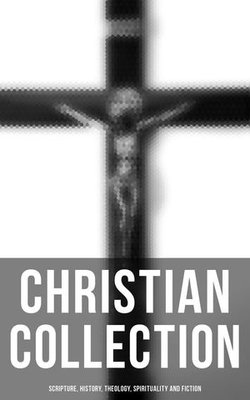The 'Christian Collection: Scripture, History, Theology, Spirituality and Fiction' offers a profound exploration into the diverse interpretations and expressions of Christian thought across ages. This anthology uniquely combines theological treatises, historical narratives, spiritual meditations, and fictional works, presenting a broad spectrum of literary styles from the allegorical to the doctrinal. The anthology highlights significant pieces that exemplify the evolution and depth of Christian literature, such as mystical reflections, reformative critiques, and epic poetry. Collectively, these works invite readers to traverse the expansive landscape of Christian intellectual and cultural heritage. The contributors to this collection are among the most influential thinkers and writers in Western history, hailing from varied periods and perspectives—from early Church Fathers like Saint Augustine and Gregory of Nyssa to reformers such as Martin Luther and modern philosophers like Nietzsche. These authors' backgrounds reflect a wide array of cultural epochs and movements, including the Enlightenment, the Reformation, and the Romantic period. Together, their writings not only mirror the rich tapestry of Christian thought but also engage in a dialogue across centuries, offering insights into the persistent and evolving challenges of faith, morality, and human existence. This anthology is an indispensable resource for anyone interested in the breadth of Christian literary expression. It is especially valuable for scholars, students, and lay readers eager to delve into the complexities of theological discourse and spiritual reflection. The 'Christian Collection' encourages a deep scholarly inquiry and personal contemplation, providing readers with a unique opportunity to engage with seminal works that shaped religious philosophy and continue to influence people around the world. By presenting such a variety of voices and styles, this collection fosters a richer understanding of Christian themes and their relevance in contemporary discussions.




Share This eBook: